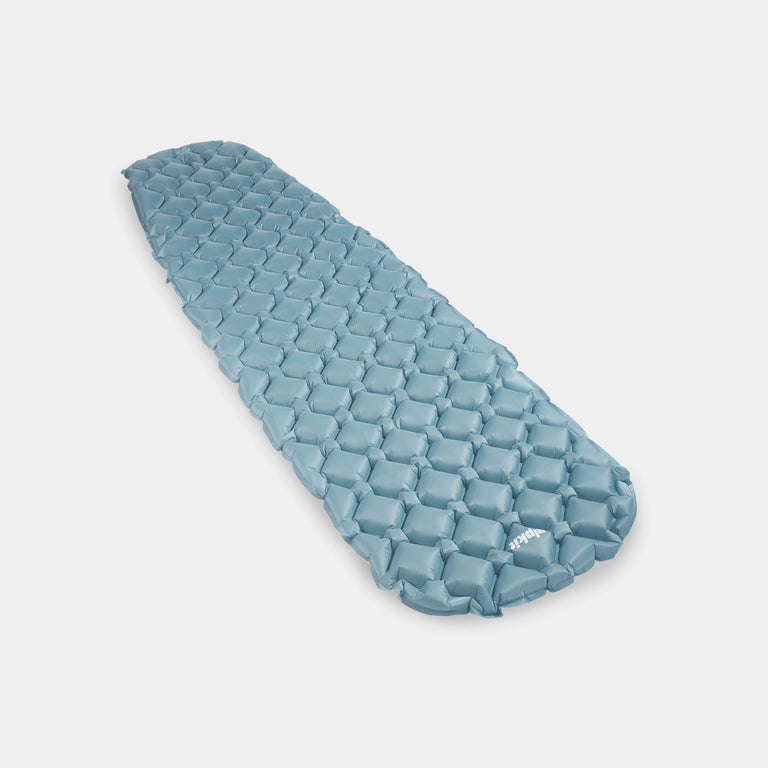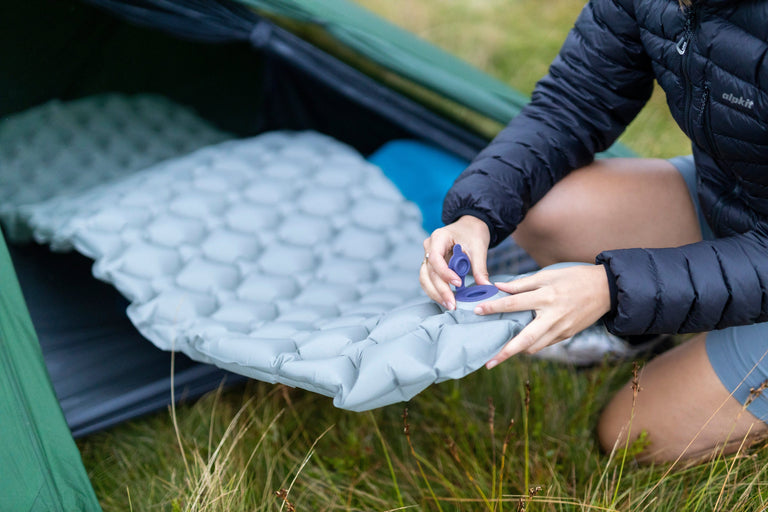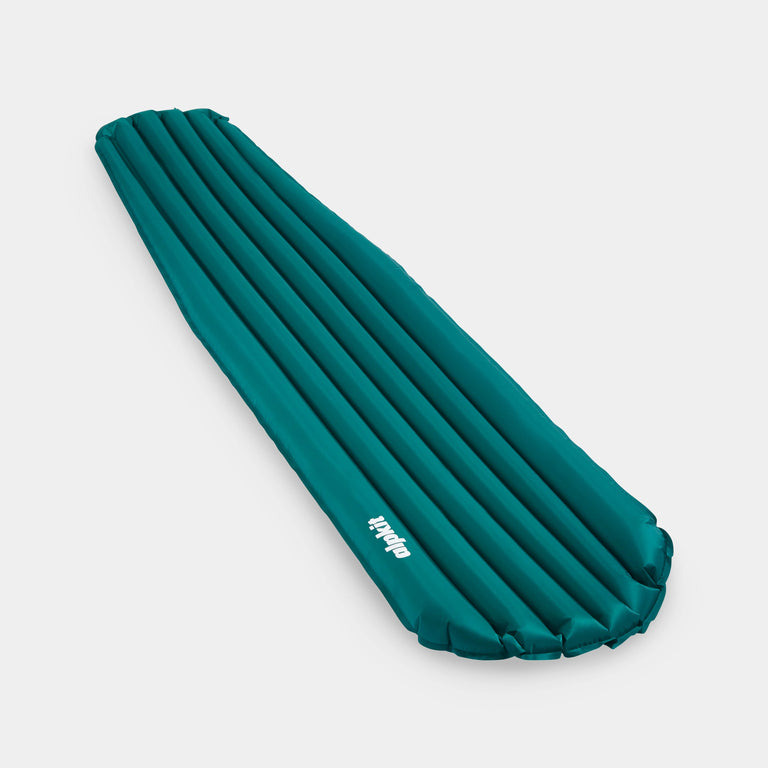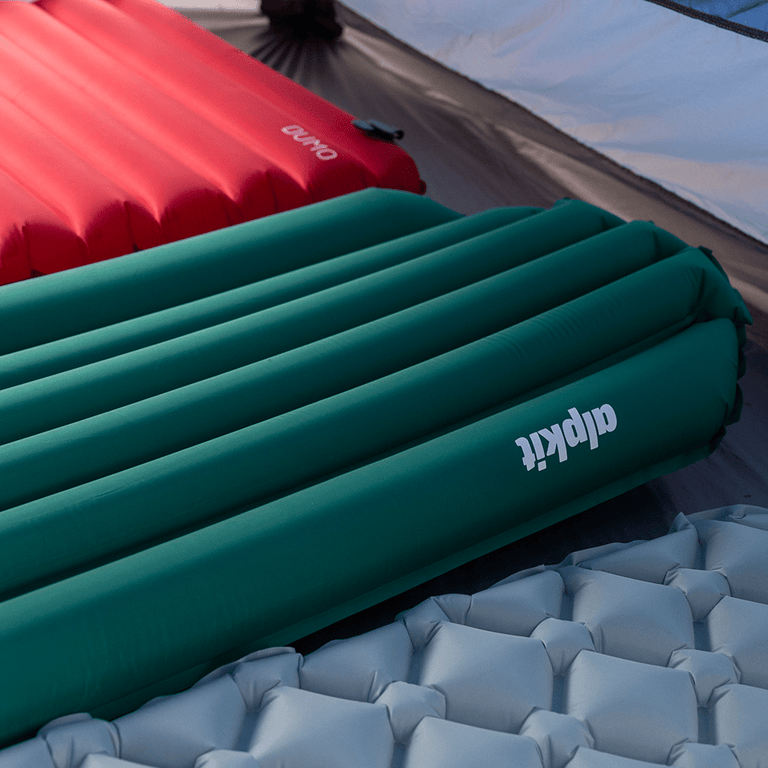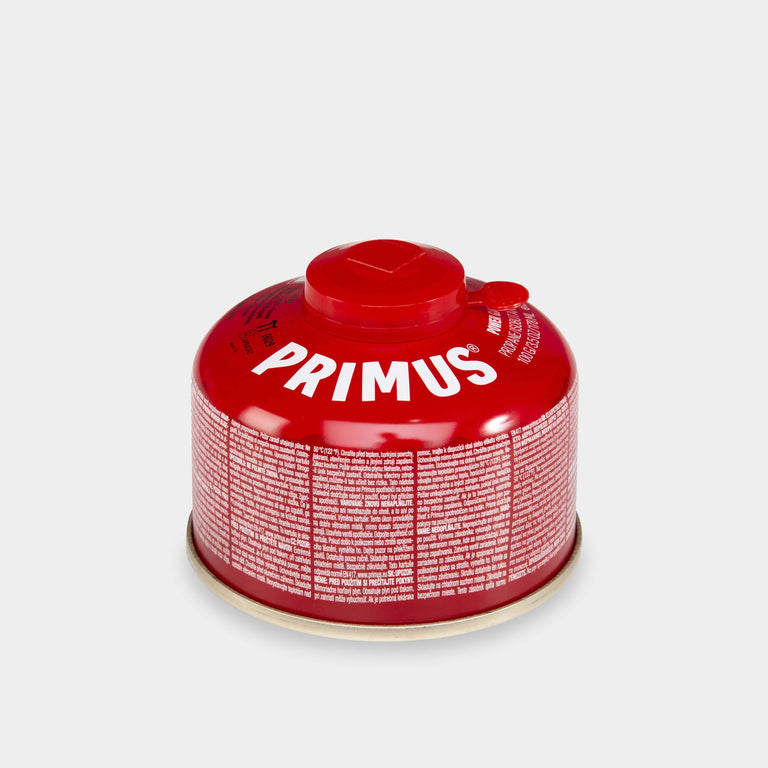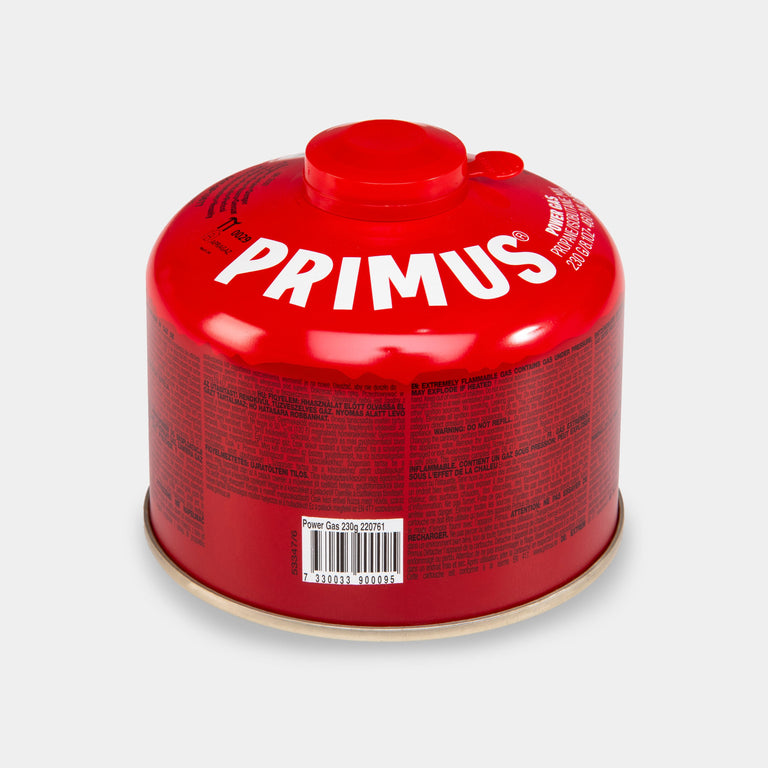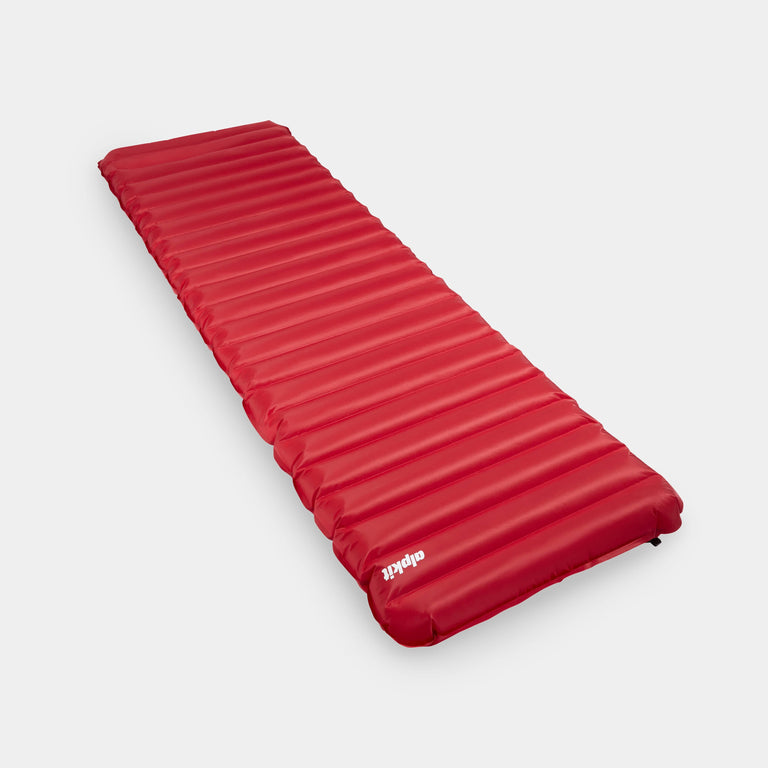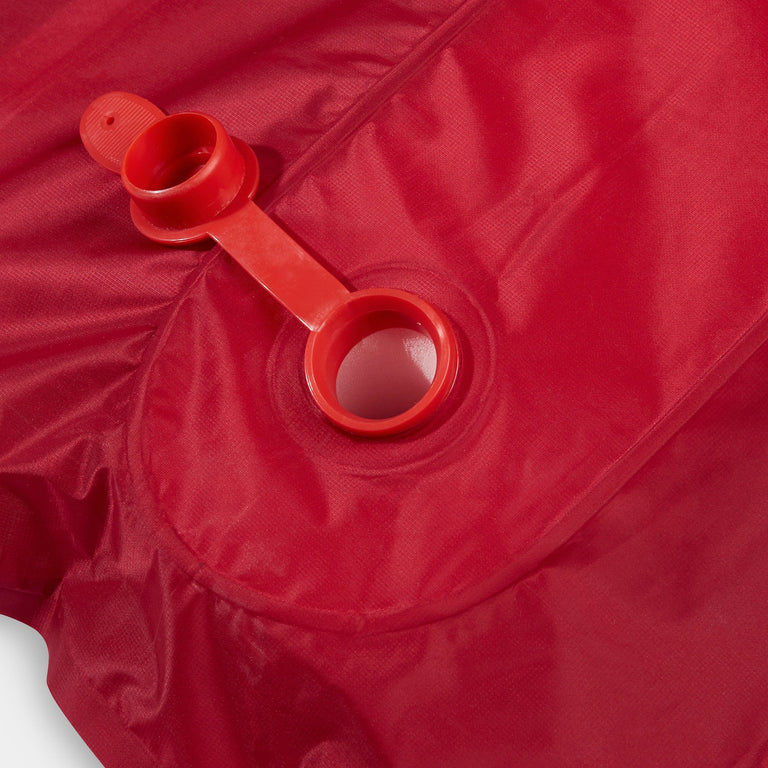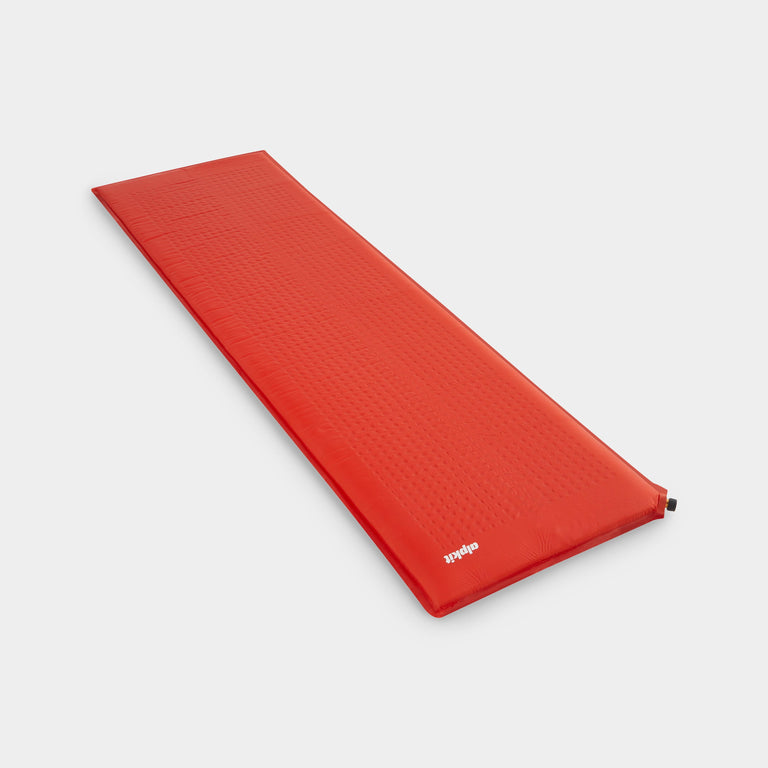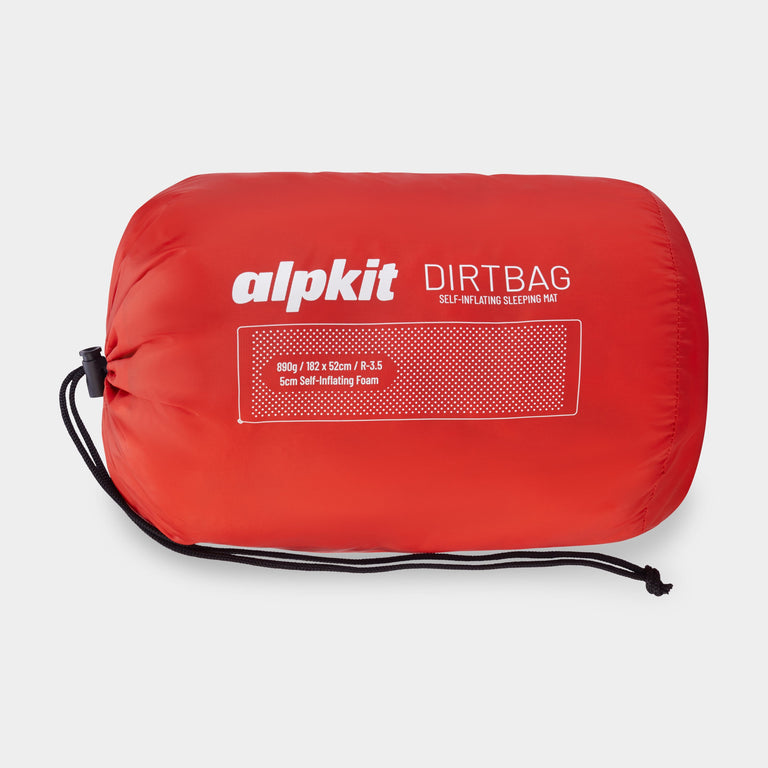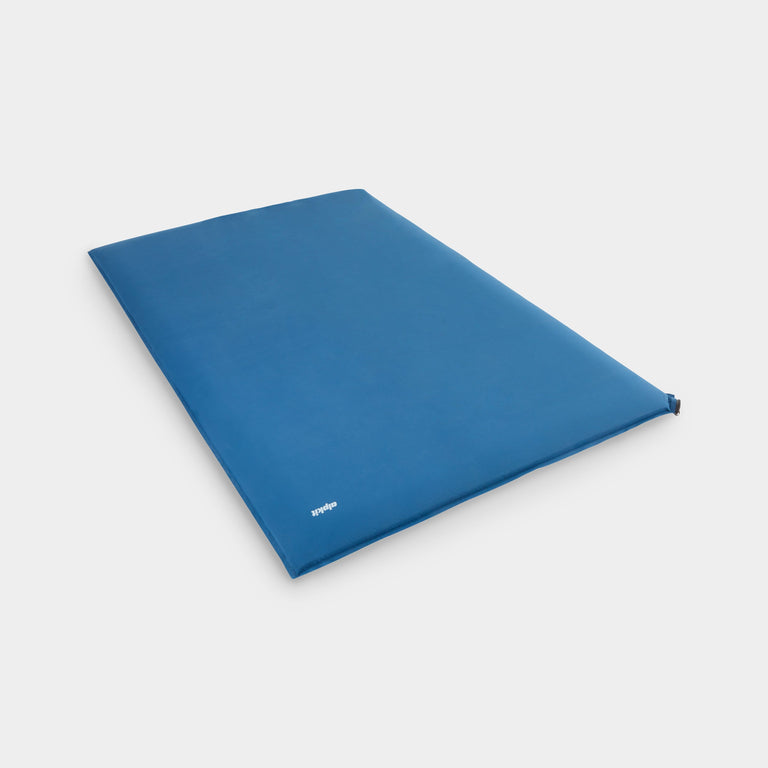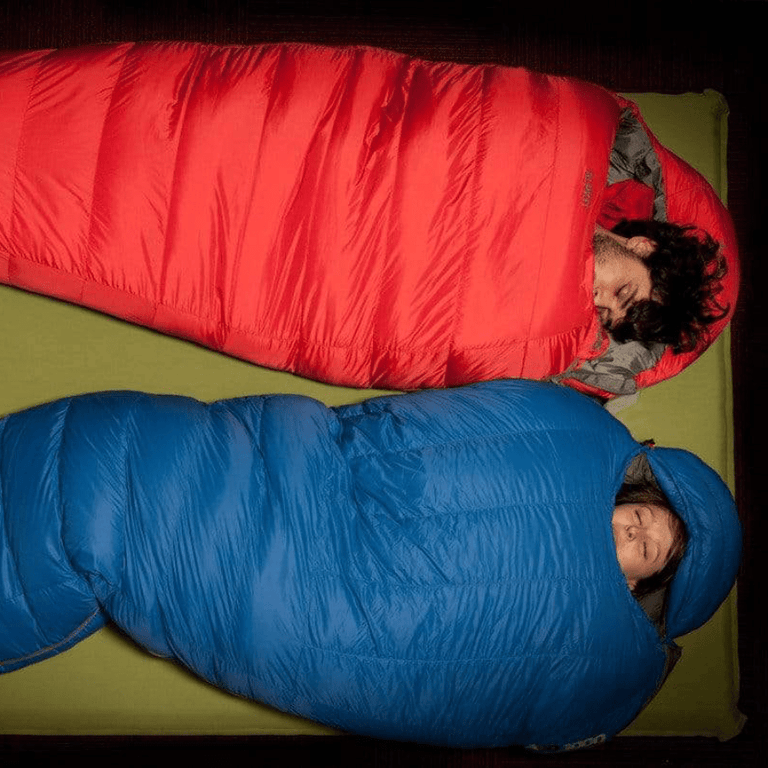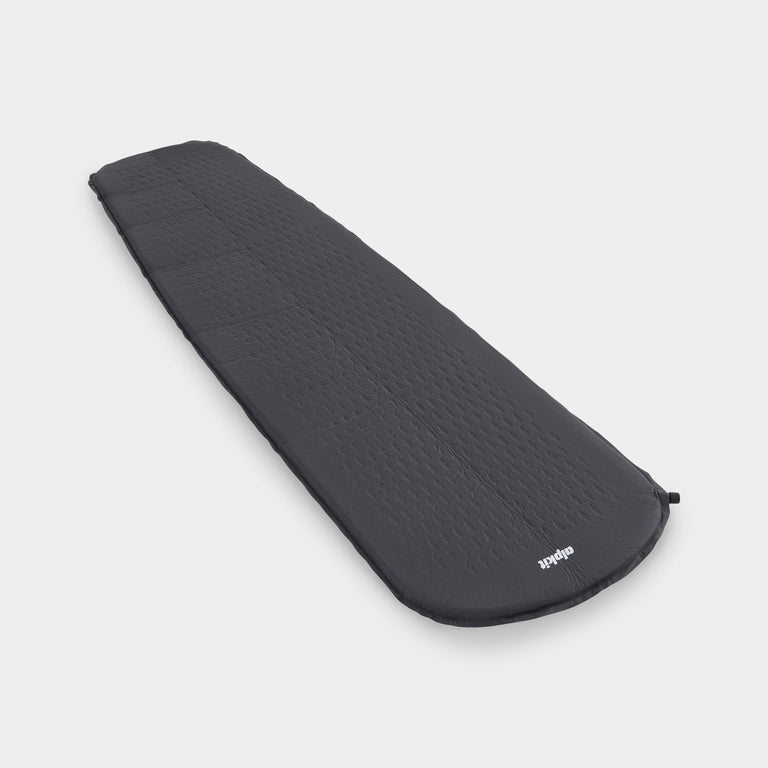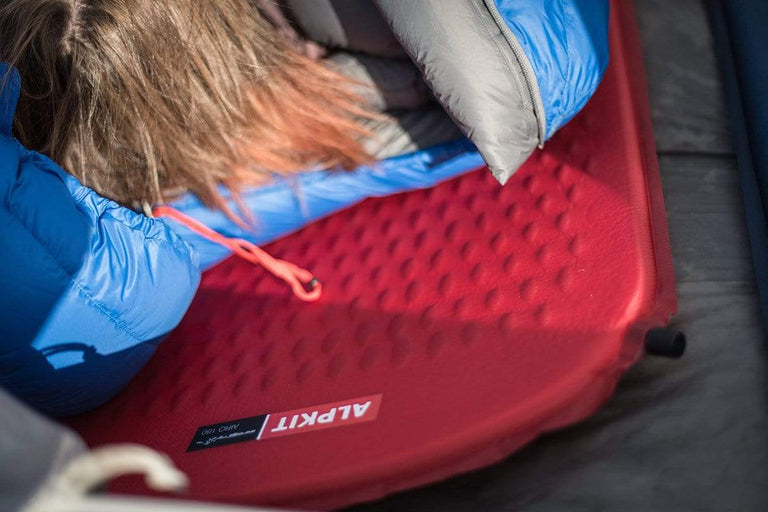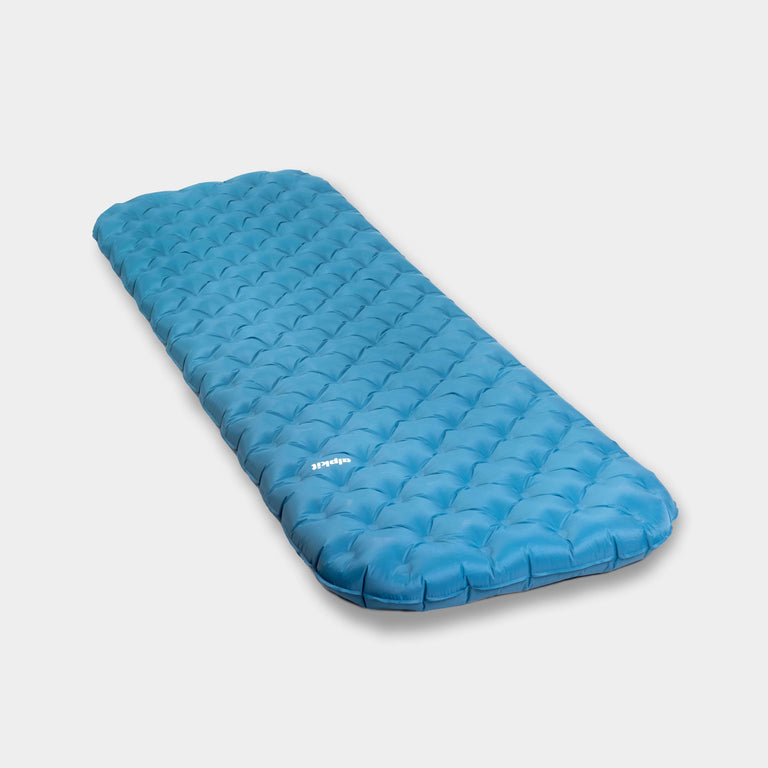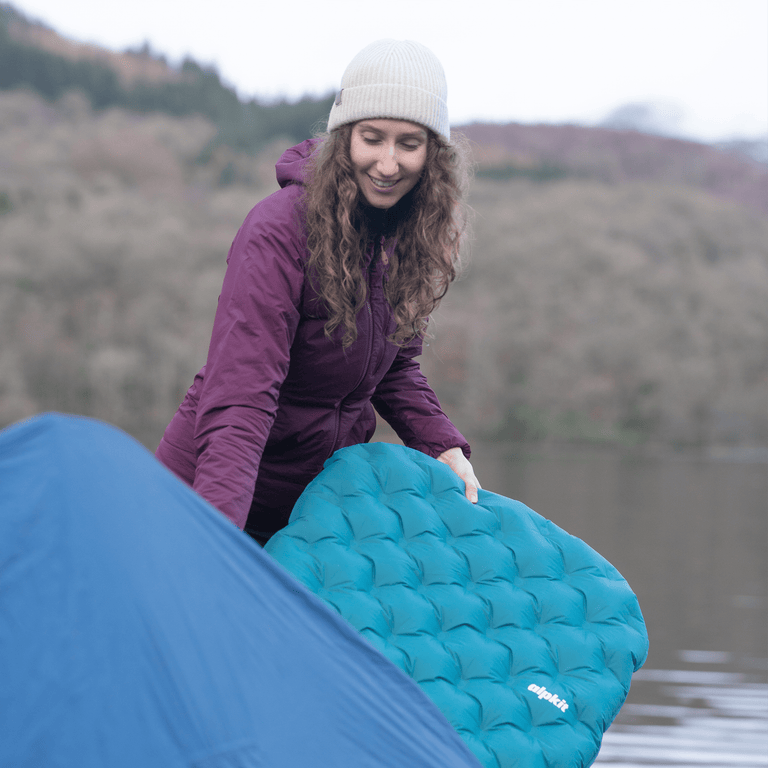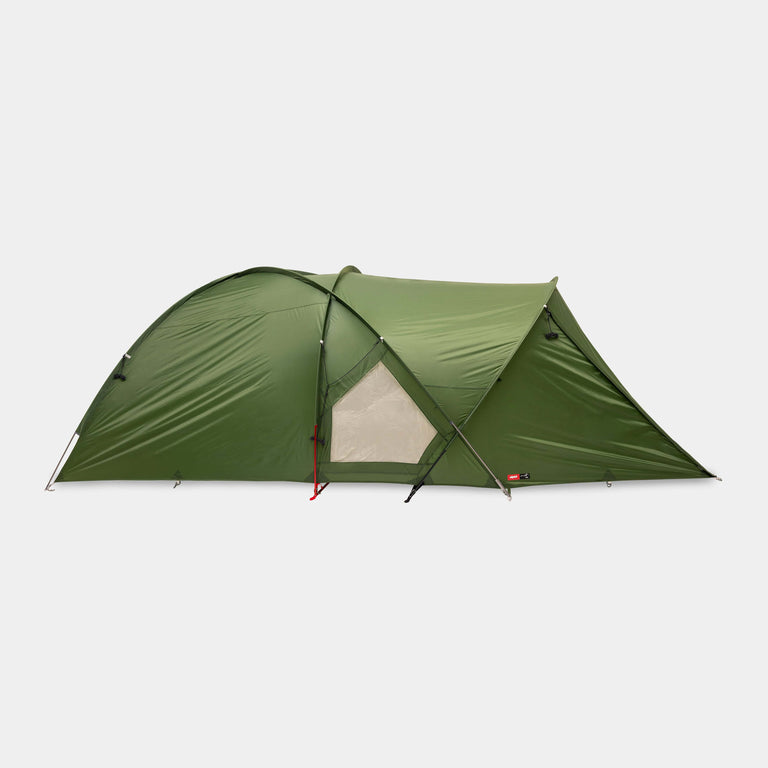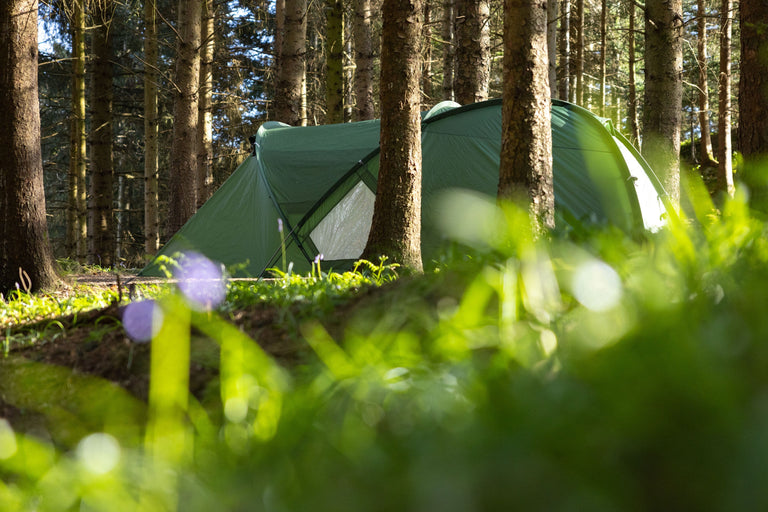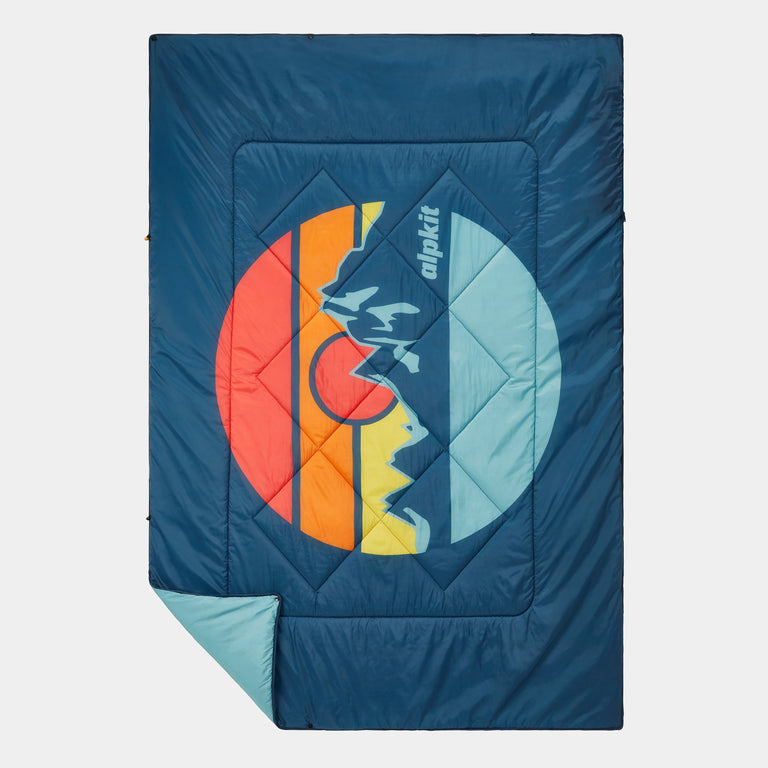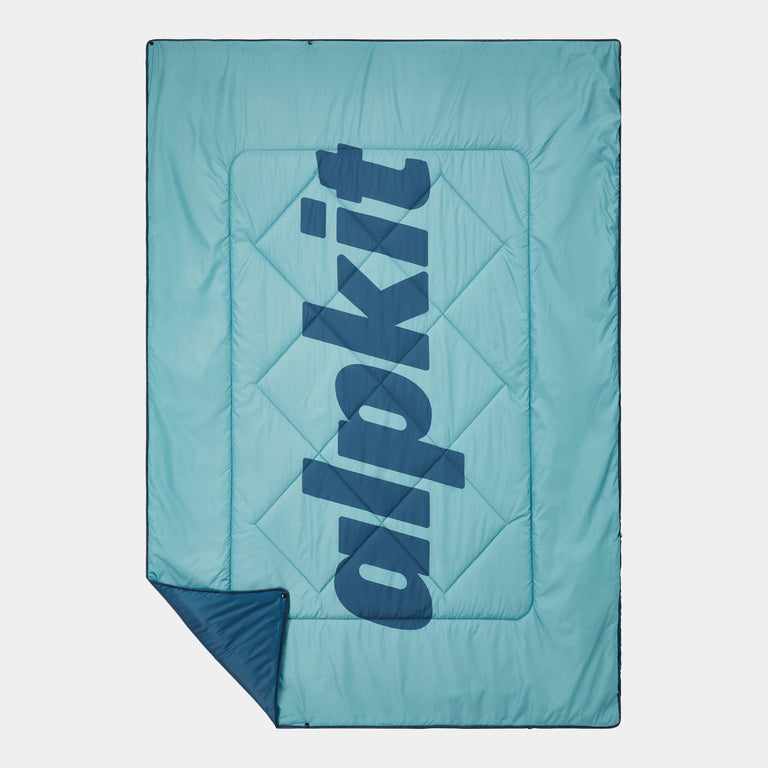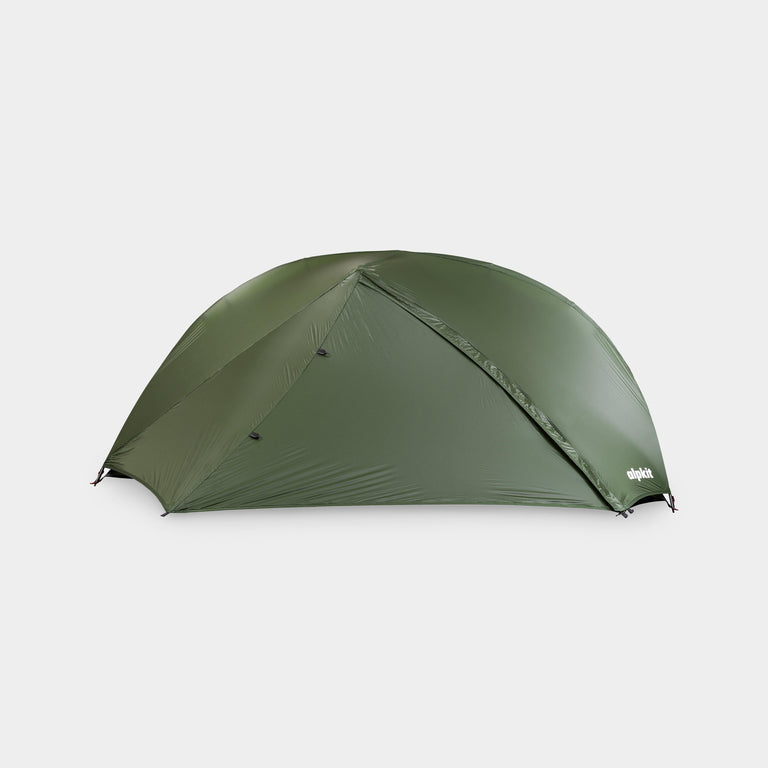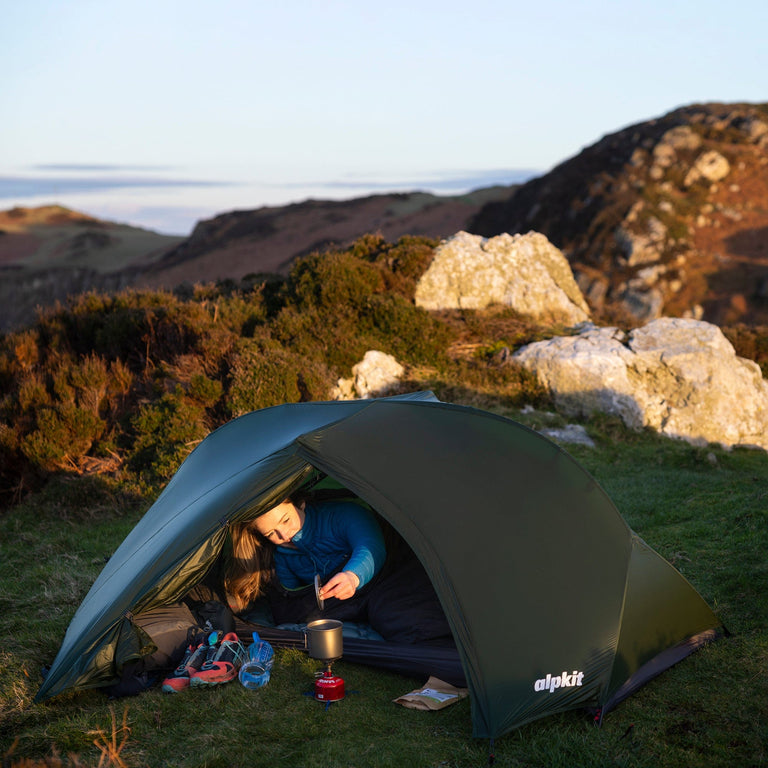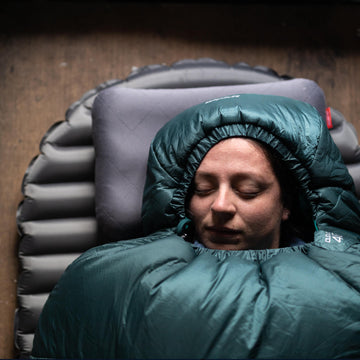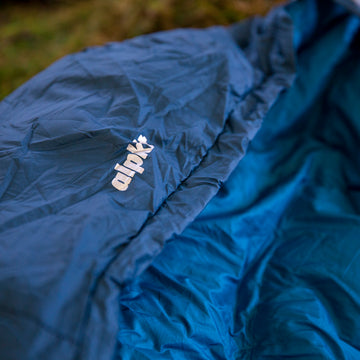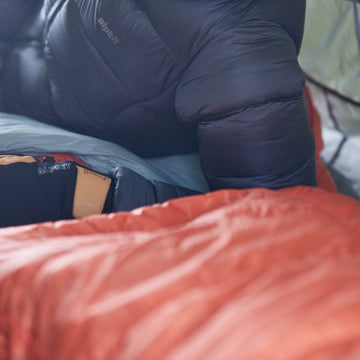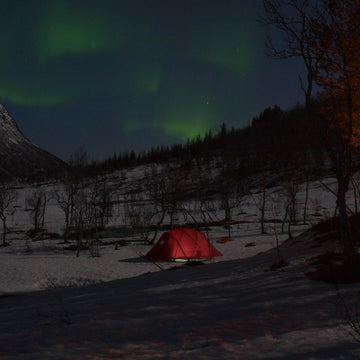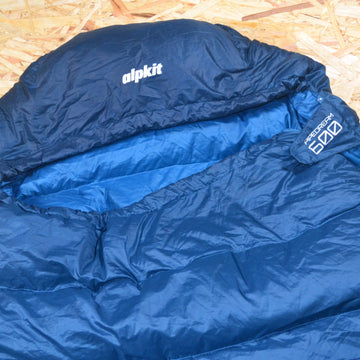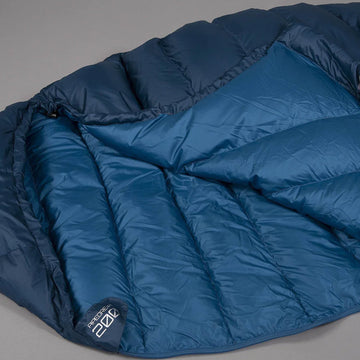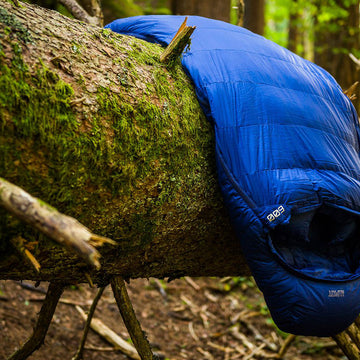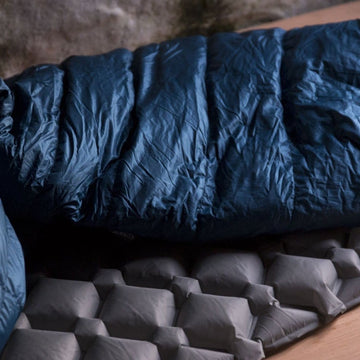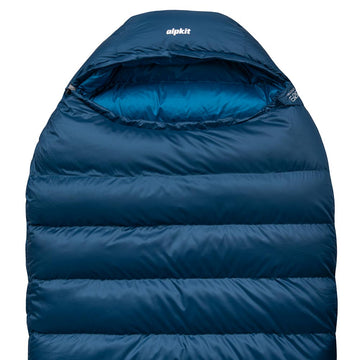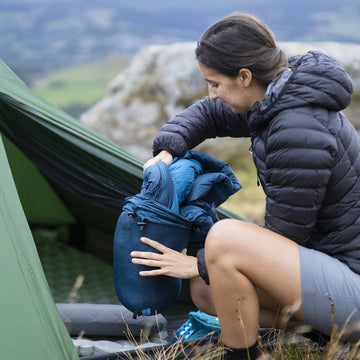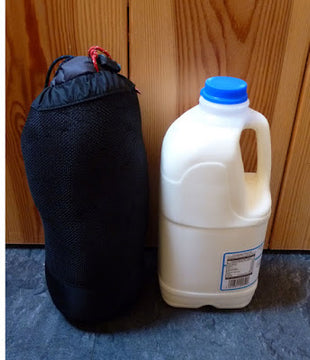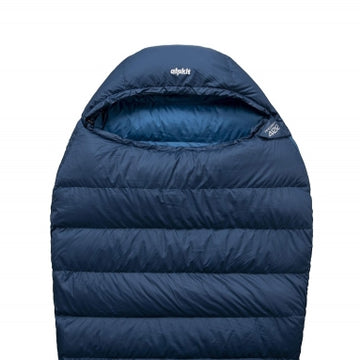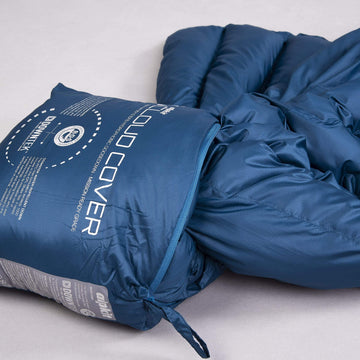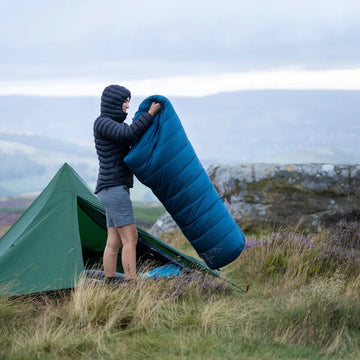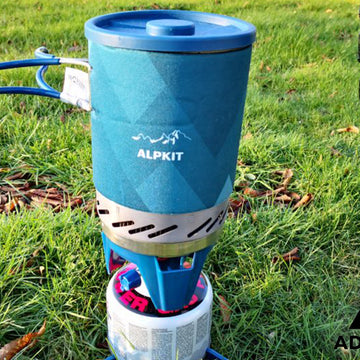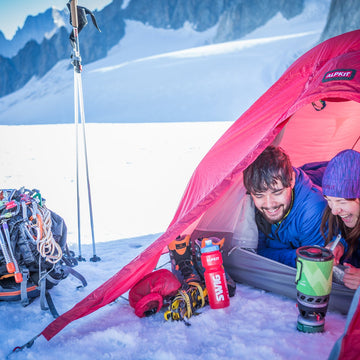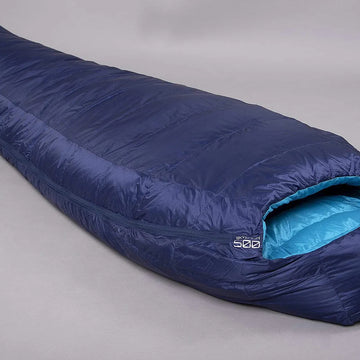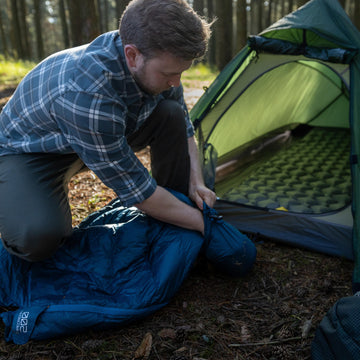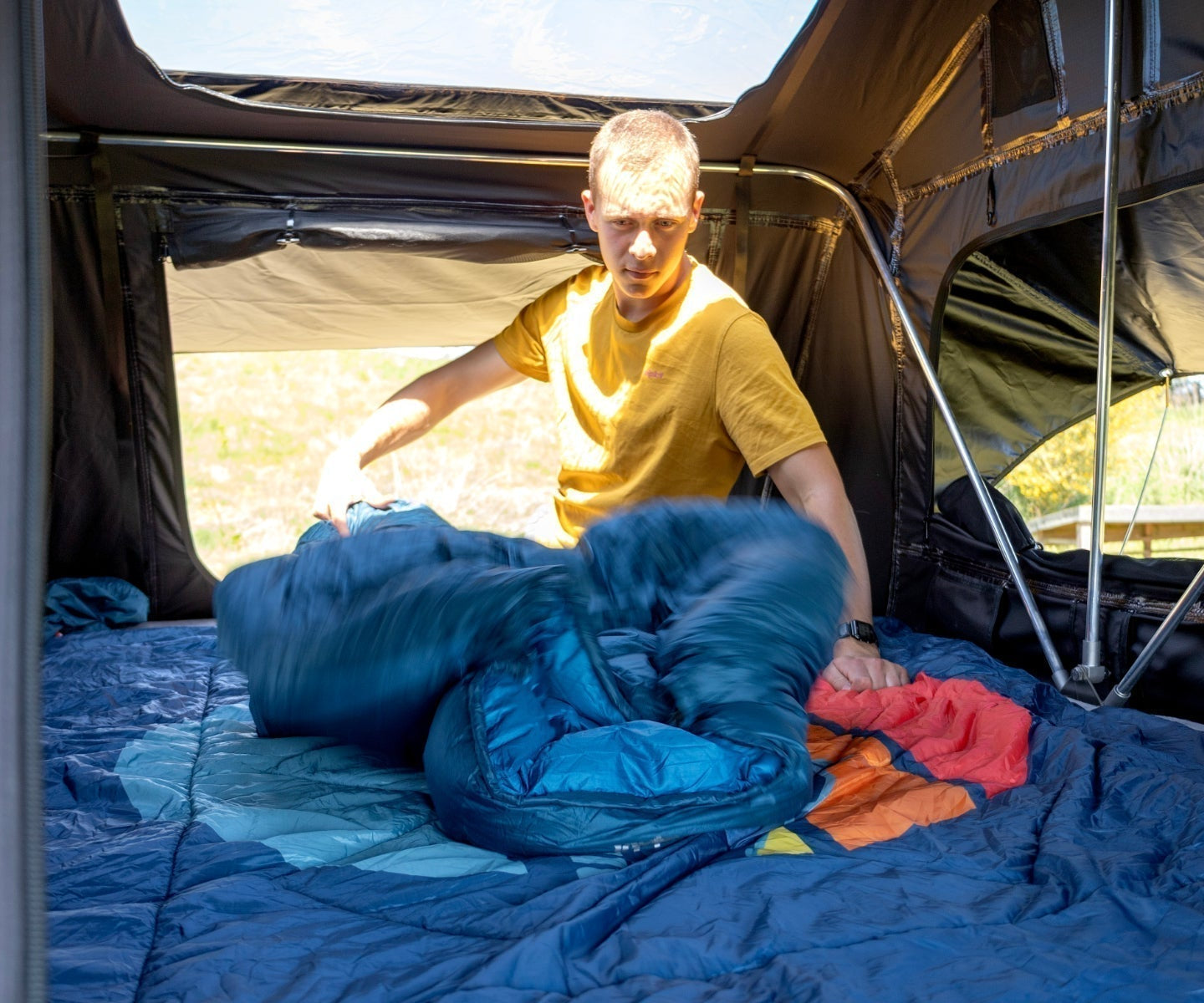
Sleeping outdoors doesn’t have to mean a poor nights sleep. These tips help you sleep better when camping, from gear to routine to mastering your environment.
Camping in summer is all about long evenings, marshmallows on sticks, and waking up to birdsong — not being kept up all night because your sleeping setup is rubbish, your mat deflated or you were bitten by pesky insects.
Whether your tiny home of choice is a roof tent or a ground tent the principles for ensuring a good nights sleep are the same.

We keep things simple with our easy to remember acronym: S.L.E.E.P. If you have heard us speaking about this before you might already be yawning your head off - if so great you now have mnemonic to use when you are struggling to get to sleep. If not, these five new and easy pointers will dial up the comfort so you and the kids get proper sleep, even when camping.
S is for Surface
Forget chucking a yoga mat under a sleeping bag. A great self-inflating mat makes all the difference. Not just for softness — it keeps you insulated from the ground, which even in summer can still feel chilly by 3am. For extra comfort, add a fleece blanket on top of the mat - you don't need to, it just feels a bit more luxurious.
Kids tossing, turning, twisting? Of course they do which is why their mat matters just as much — even if you have one with decent padding and grip they will find a way of slithering off it. Build up some buffers around the mat so that they don't end up on the groundsheet.
For couples we recommend our Double Dozer double width sleeping mat. This is the big guy, big mattress, big quality, big comfort, with a luxurious soft touch surface that lets you cosy up without anyone falling between two mats.
For the big kids the single Dozer will make sure they don't feel they have drawn the short straw whilst the littluns will have a great time on a 1/2 length Airo 120 sleeping mat.

Your head deserves special attention, so treat it to an inflatable camping pillow - it also doubles up as a neck rest for the long journey home.
L is for layering
No need to bundle up like it’s Everest Basecamp. In really warm weather, a light cotton liner or silk liner can replace a sleeping bag entirely. A merino baselayer will double as a comfortable, breathable nightshirt, and for the kids cotton PJs or a comfy tee and shorts are ideal.

Your sleeping bag is an essential item. The difference between winter camping and summer camping is that you might actually sleep too hot and need to shed heat. For this reason a classic rectangular sleeping bag can be easily zipped open, or our Mañana Quilt is great to throw over at any time for extra cosiness.
E is for Eating & Drinking
Fed kids = happy campers. A warm, carby dinner like pasta helps everyone wind down, but avoid those sugary snacks right before bed — you want them sleepy, not bouncing. I have heard an apple before bedtime works well.
Our Cupertino pots or Stainless Steel Tiffin containers are great for storing left overs ready for light night nibbles.

Hydration’s still key, but ease off the water near bedtime to dodge midnight loo trips. Depending on how the day has gone you might decide a nightcap is in order.
E is for Extremities
Even in summer, little feet and fingers can cool down fast. Pack lightweight socks and a beanie, especially for younger ones. If they wake up chilly, a warm pair of socks might just save the night. Same goes for you — comfy feet = deeper sleep.
It is always a grand idea to pack a fleece beanie or headband so you don't have to bury your face in your sleeping bag to just keep your ears warm.
And what about the other end of the spectrum - the heat. Too much exposure to the sun during the day can affect your sleep. Make sure you wear a cap and some cool sunnies while you are out and about and keep your head clear.
P is for Protection
We all like to be in the goldilocks zone but the weather has a habit of switching between extremes. Camping in the summer isn't just about making sure you stay dry in the rain.
Pitch your tent in the shade if possible, and ventilate properly to avoid waking in a sauna. A well-pitched tarp or awning can keep things cooler. Pitching a tarp over your tent is surprisingly effective at taking the edge off the heat of direct sunlight.
Insect protection is vital for a sound nights sleep — make sure your tent has mosquito and midge proof panels and have some natural midge repellent to hand.

Summer family camping should be relaxing — not a test of endurance. Follow the steps to S.L.E.E.P., and you’ll be dozing off under the stars like a pro.

